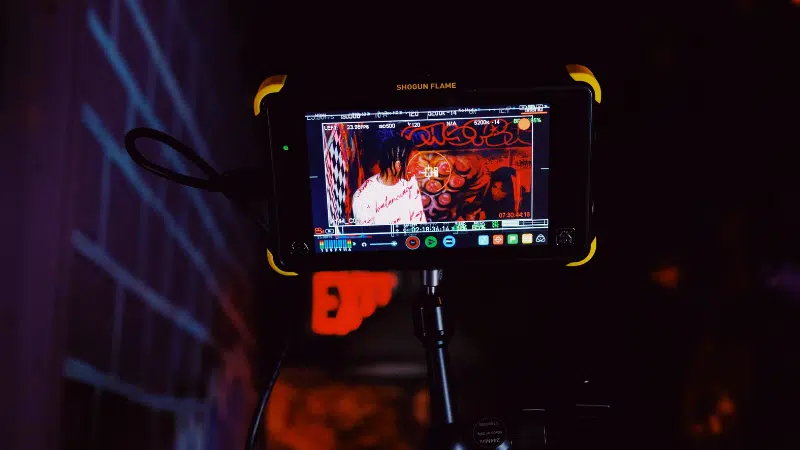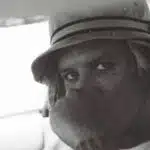When it comes to music promotion, video is king. So, we asked our friends and experts at Rotor Videos for their advice, tips, and tricks on how to streamline your music video marketing strategy. Here’s what they had to say…
Video Tips for Your Music Marketing Strategy
What videos should musicians be making to promote their music?
Video is the most thumb-stopping format you can use on social. And it can be used to promote all kinds of artist activities—like album and single releases, IRL events, merchandise sales, new episodes of your vodcast or series, contests, etc. But these all tend to fall in to one of these main video categories, which every independent musician needs in their music marketing toolkit:
- teaser videos
- promo videos
- music videos (official audio, music and lyric videos).
Teaser & Promo Videos
These are your secret weapons for creating a high volume of videos you need to boost music promotion and get noticed online. They’re short videos (usually 15–30 seconds long) that provide straight-to-the-point messaging about upcoming plans or current/recently live projects (think Coming Soon, Out Now, New From, etc.) Their beauty is how easy and affordable they are to make. Here are some do’s and don’ts:
- Include text // On social, most videos are mute by default, so promo text communicates your message when audio can’t.
- Keep text brief // 30 seconds isn’t a lot of time to get an idea across. And you need to leave the text on screen long enough for it to be read. A good guide is to limit your word count to one word or less per second. So if your promo is going to be 15 seconds long, then your total word count needs to be 15 words or less.
- Include a backing track // These teasers and promos are about you, so make sure to feature your own music in them, even if the promo/teaser isn’t for a release. When it IS to promote an upcoming or new release, use the hook of your track to make an immediate and memorable impact.
What next?
Don’t make viewers guess what you want them to do after they’ve seen your teaser or promo. Include a call to action — that short instruction at the end that prompts them to interact in some way. (Buy Now, Stream On, Download, Follow, Subscribe Now, are all examples.)
Remember your shapes. — Many artists make videos in the horizontal (16:9) format, which is great for YouTube and maybe Twitter. But let’s not forget that there are a host of other distribution channels out there where landscape videos look pretty crap — especially on mobile (shrunk down to fit the screen, black bars, etc). And speaking of mobile habits, it’s important to remember that 70% of millennials don’t bother flipping their mobiles horizontally when watching videos. So create every teaser and promo in the shapes the look best on the social channels you use.
Make square and vertical versions so that they always take up the maximum available space on social channels — like square for Instagram and Facebook feeds, and vertical for Instagram Stories, Facebook Stories, Tik Tok, etc. Fill the frame so that all eyes are on you!
Music Videos
This is the classic style that our brains immediately jump to when someone says music video. Full-length official music videos are still as important as ever for building a fanbase and music promotion (thanks to YouTube). Here are some tips and suggestions:
- Be creative // Take your time and make a video that showcases your brand identity as well as your musicianship.
- Know your direction // Do you want to go abstract to evoke a mood? If so, maybe use visualizer clips or animations. Do you want to tell a story? Then you’ll need to film or find clips that work together to build the narrative.
- Personalize it with you // Appearing in your music video is a great way to show fans your personality and let them get to know you. Include footage of you performing the track, dancing, or acting as a character in your narrative.
- Personalize it with home // Another great way to personalize music videos is simply to shoot footage around your town. Stock libraries have a lot of really great, high quality footage, but they’re not going to have clips of your local bar, that iconic mural or signage your neighbourhood is known for, etc. Clips like these can boost the authenticity factor and communicate a lot to fans about who you are.
- Be visually consistent // If you mix ultra glossy hi-fi footage with janky lo-fi footage, your video may come out looking like random clips in a blender.
For a more professional look, one option is to use clips that are all from the same shoot or footage collection. That will ensure that the lighting, filming style, film quality, and theme is consistent in every scene. If you need to use clips from lots of different sources, try to pick ones that share visual qualities in common, like finish (all lo-fi or all hi-fi), light levels, or colour tones. Another trick is to apply filters during editing to tie your range of clips together (like tinted overlays, or making everything black and white).
- Tease them // If labels put out press releases every time an artist launches a new music video, then indie artists should follow that cue and be hyping up their own music videos. Tease its launch weeks in advance with promo videos, sneak peeks of snippets, and date countdowns. Not only does it build anticipation and increase the reach of your new track, it also allows you to grow and deepen your relationship with your fanbase.
——
🧠 Expand Your Mind…
How To Promote Your Music Video in 7 Easy Steps
Creative Ways To Monetize Your Live Streams
How to Prepare for Video Distribution
——
Lyric Videos
On YouTube, lyric videos are a smart way to get closer to the 10K threshold you need in order to monetize your content with ads. The more content you post, the more views you accumulate. It’s a simple formula. Some fans love learning the lyrics to songs so they can sing along, and that means they play these videos over and over. The benefit? This increases both individual video views and your channel’s lifetime views.
In this case, here’s what we suggest:
- Make one for every track // They’re so fast and inexpensive to make, there’s no reason not to. Plus, they give every track its own chance to shine.
- Release them before your music videos // Use them to test which tracks are fan favorites before you decide which songs to create official music videos for. That extra bit of insight can give your music video a much better chance at performing well in terms of reach and engagement.
- Think of fonts like people // Typefaces have personalities, just like people. Helvetica is responsible and businesslike. Comic Sans is innocent and informal. When picking your lyric video’s font(s), think of it like casting the lead character(s) in your video. Which character best represents that song or that bit of the song? If it’s a grime track, a delicate swirly cursive probably won’t be the right choice for the starring role.
- Watch for readability // Fans can’t learn your lyrics if they can’t read them easily. So readability is crucial. Text’s time on screen, placement, and contrast with the background can all affect readability.
Try to keep text on screen at least 2–3 seconds if you can, unless there’s a good creative reason to flash words up faster. For the background, choose clips that don’t distract from the text. That’s not to say that you must only use solid color backgrounds. It just means that if you use video clips with a lot of action, texture, or pattern in them, then be mindful of text placement and contrast.
Always (regardless of whether you use a solid color or video clips) make sure your type color is light or dark enough to clearly stand out against the background. That’s contrast (for example navy text on black background and offwhite text on white background are low contrast (bad for readability)). And if you think your text is a little tough to read with whatever motion or pattern is behind it, just drag it to a less busy section of the screen.
- Mask up // No, that’s not a COVID reference. Masked text is reversed-out text. It’s where a black layer is put over the background video, and the scene is only visible inside the lines of each letter. It’s another way to emphasize key words and add visual variety to your lyric video.
- Go big // Again, the lyrics are the hero here, so set them large and make them the star. And change it up. Make some words extra large for more emphasis if they’re key words in your lyrics. Make others smaller if it suits. There’s no rule that says all of your text must be the same size throughout.
- Spellcheck and proof // Purposely choosing to spell words wrong to fit the slang or a dialect is a valid creative choice (like turnt or ‘bout to), but accidental typos and mistakes like using the wrong there, they’re, and their can look unprofessional.
How easy it for artists to make these kinds of videos in Rotor?
Almost too easy. — We’ve broken it down to simple steps that you can complete in minutes if you’re making a promo video, and in under an hour if you’re making a full-length video:
- Upload your track.
- Pick the editing and effects style you want to apply and the video shape you need (square, vertical, horizontal).
- Point and click to select the clips you want to use (either your own footage or from our library).
That’s it. — From here, you can let the app work its magic. Rotor’s Audio IQ will listen to your song, automatically cut everything together, and apply visual effects to match the rhythm, intensity and tempo of your track.
(If you’re making a lyric video or teaser/promo video, follow this fourth step: Add screen text overlays and customize fonts, color, size, etc with the straightforward styling menus.)
Seems too good to be true… What’s the catch?
There really isn’t one. — Artists can create a wide range of videos to promote their music starting at just $6/video. And there are subscriptions for anyone looking to make more videos/month for less. That’s hard to beat, especially considering that our app handles all the complex editing bits for them, so they can focus on look and feel, and it allows them to use our library of over 6,500 premium video clips and animations at no extra cost.
How can Symphonic members get started?
Jump on over to our Symphonic x Rotor page, create your free account. You can experiment as much as you like. There’s no charge until you want to download your finished video.
Let’s get to work!


